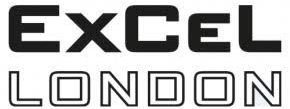Firm Commitment to Sustainability in the Coffee Industry
Plastic products have been dominating the global “green” agenda this year. From concerned people dedicating their free time to clean-ups along local coastlines to organisations promoting innovative ocean scoops… plastic has become their Public Enemy Nº1.
They will have noticed first-hand that one of the greatest offenders – not only in the sea but throughout a much wider environment – is the disposable coffee cup, which is lined with non-biodegradable plastic.
Just how serious, specifically in the United Kingdom, was highlighted in a GlobalWAKEcup blog shared by the Marine Conservation Society. “As a nation of tea and coffee lovers, it comes as no surprise that the average Brit spends £2,210 in coffee shops every year. Unfortunately, this coffee obsession has had some serious consequences for our planet and the numbers soon add up. For example, did you know, every year it is estimated that 2.1 billion single-use coffee cups end up in landfills throughout the UK?
“It is imperative that we continue to find ways to improve our day-to-day behaviour, which is why this year charities and MPs have been calling for an introduction of a ‘latte levy’ in takeaway coffee shops, which could be a landmark initiative for our oceans.”
In January 2018, MPs on the Environmental Audit Committee recommended that the Government introduce this “latte levy”: a 25-pence charge on disposable coffee cups bought by customers. However, in October later that year, presenting his autumn budget, the Chancellor of the Exchequer, Philip Hammond, rejected the levy – although he did propose a new plastic packaging tax as a way of “transforming the economics of sustainable packaging”.
Resolving a Broad Spectrum of Environmental Issues
In any event, considerably more needs to be done than simply taxing disposable containers. As GlobalWAKEcup notes, “A common misconception is that single-use coffee cups are recyclable.
Most people in this day and age will go to extra lengths to seek out recycling bins for their cups and yet it could all be in vain! This is due to the complex nature in which the cups are manufactured to keep the heat in, combining paper and plastic components. In fact, there are only three facilities in the whole of the UK which are capable of fully splitting the paper and plastic that make up these cups, resulting in a rough estimate of only 0.25 per cent cups recycled.”
Nevertheless, any initiative – no matter how modest – makes a valuable contribution, not only coffee cups but a wide array of other packaging options. The Bag Broker UK, for example, is fully committed to sustainable practices and recycling. The company’s True Bio Bags are a flexible, biodegradable form of packaging – ideal for companies to use when packaging food products that customers will be purchasing from supermarkets.
“Each bag features an elegant, sturdy design which can biodegrade in just 90 days when composted properly,” explains The Bag Broker. “This will make a huge difference to the planet, especially for small animals that often get trapped in alternative non-biodegradable bag options. Using environmentally-friendly packaging will also help customers feel reassured that they have indirectly helped the planet, choosing to buy a product which features a sustainable packaging material.”
The Bag Broker also offers an extensive range of flexible coffee packaging designed and manufactured to seal in the freshness of coffee beans and grounds. They include self-standing and box-bottom bags, zip lock seals and one-way degassing valves, with coloured foils available for a luxurious presence on the shelf and natural Kraft promoting a rustic, organic feel.
Diverse Alternatives to Coffee… and Milk
Coffee tends to be one of those beverages that people either crave or simply can’t bear – no middle ground. On one side are those who head straight for the coffee machine first thing in the morning and would struggle to survive the afternoon without a strong brew after lunch. And, on the other, those who shy away from coffee for a variety of reasons, whether it is the bitter taste, potential digestive distress or a propensity towards suffering the jitters.
For the latter group, Healthline offers nine delicious alternatives: chicory coffee, matcha tea, golden milk, lemon water, yerba mate, chai tea, rooibos tea, apple cider vinegar and kombucha. Vegans and lactose-intolerant imbibers are also well catered for with alternatives to dairy milk. Forbes put together “Five of the Healthiest and Best Alternatives”, with writer Joanne Shurvell noting, “Vegans are no longer on their own when it comes to eliminating dairy from their diets. Many people avoid dairy for health reasons as well as ethical ones. Soy milk of course has been on the market for years but I'm not keen on the taste in coffee or tea. My search for the perfect milk alternative for my morning latte has involved testing a wide range of products. From oats to nuts to coconuts, here are five of the best milk substitutes I've found, some of which work well in coffee; others are best by the glass or poured over cereal.”
VegNews also helps out with “Five Must-Make Vegan Lattes Perfect for Fall”. “With high demand for more vegan options from conscientious consumers,” writes Aruka Sanchir, “coffee shops everywhere are taking notice. And with recent studies highlighting the health benefits of coffee (we knew it all along!), there’s even more reason to drink that second (or third) cup. With this in mind, here are five delightful vegan lattes to get you ready (and dare we say ‘excited?’) to start your busy day.”
Article by @Dakota_Murphey








